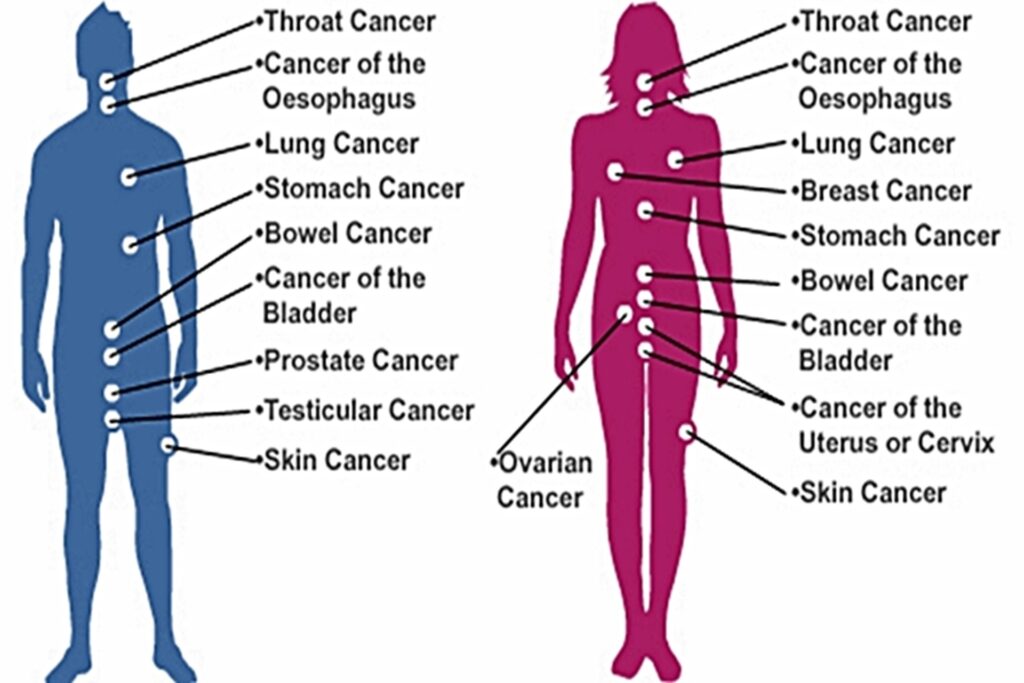
Overview:
Cancer is a group of diseases characterized by the uncontrolled growth and spread of abnormal cells in the body. It can occur in any part of the body and is classified into different types based on the affected organs. Some of the most common types of cancer include lung cancer, breast cancer, prostate cancer, and colorectal cancer. While the exact cause of cancer remains unclear in many cases, certain lifestyle factors, genetics, and environmental exposures are known to increase the risk.
Causes:
Cancer can be caused by a variety of factors, including genetic mutations, lifestyle choices (such as smoking, poor diet, and excessive alcohol use), exposure to harmful chemicals, radiation, and infections. In some cases, cancer may be inherited or result from the accumulation of genetic changes over time. Environmental factors, including pollution and occupational hazards, can also contribute to the development of cancer.
Symptoms:
Symptoms of cancer vary depending on the type and stage of the disease. Common signs include unexplained weight loss, fatigue, changes in the appearance of a mole or skin lesion, persistent cough or hoarseness, difficulty swallowing, lumps or swelling, and bleeding. Early detection through regular screenings is essential for improving treatment outcomes.
Treatment:
Cancer treatment often involves a combination of surgery, chemotherapy, radiation therapy, immunotherapy, and targeted therapies. The treatment plan depends on the type, stage, and location of the cancer, as well as the patient’s overall health. Surgery is used to remove tumors, while chemotherapy and radiation therapy are aimed at shrinking tumors and killing cancer cells. Immunotherapy helps boost the body’s immune system to fight cancer, while targeted therapies focus on specific molecules involved in cancer cell growth.
Precautions:
Cancer patients need to manage side effects of treatment, such as fatigue, nausea, and immune suppression, with the help of their healthcare team. It is important to maintain a healthy diet, stay hydrated, and avoid infections during treatment. Regular follow-up visits are essential to monitor progress and detect any recurrence.
Prevention:
While some cancers are unavoidable, adopting a healthy lifestyle can help reduce the risk. This includes avoiding tobacco, limiting alcohol consumption, maintaining a healthy weight, eating a balanced diet, and exercising regularly. Vaccines for certain cancers (such as HPV and hepatitis B) and regular screenings (such as mammograms and colonoscopies) can help detect cancer early and reduce risk.
For expert cancer care and treatment, visit the KDM Hospital in Lucknow. The hospital offers comprehensive oncology services, including advanced diagnostics, chemotherapy, radiation therapy, and surgical interventions, with ambulance services, budget-friendly options, Ayushman card acceptance, and 24/7 doctor availability.
